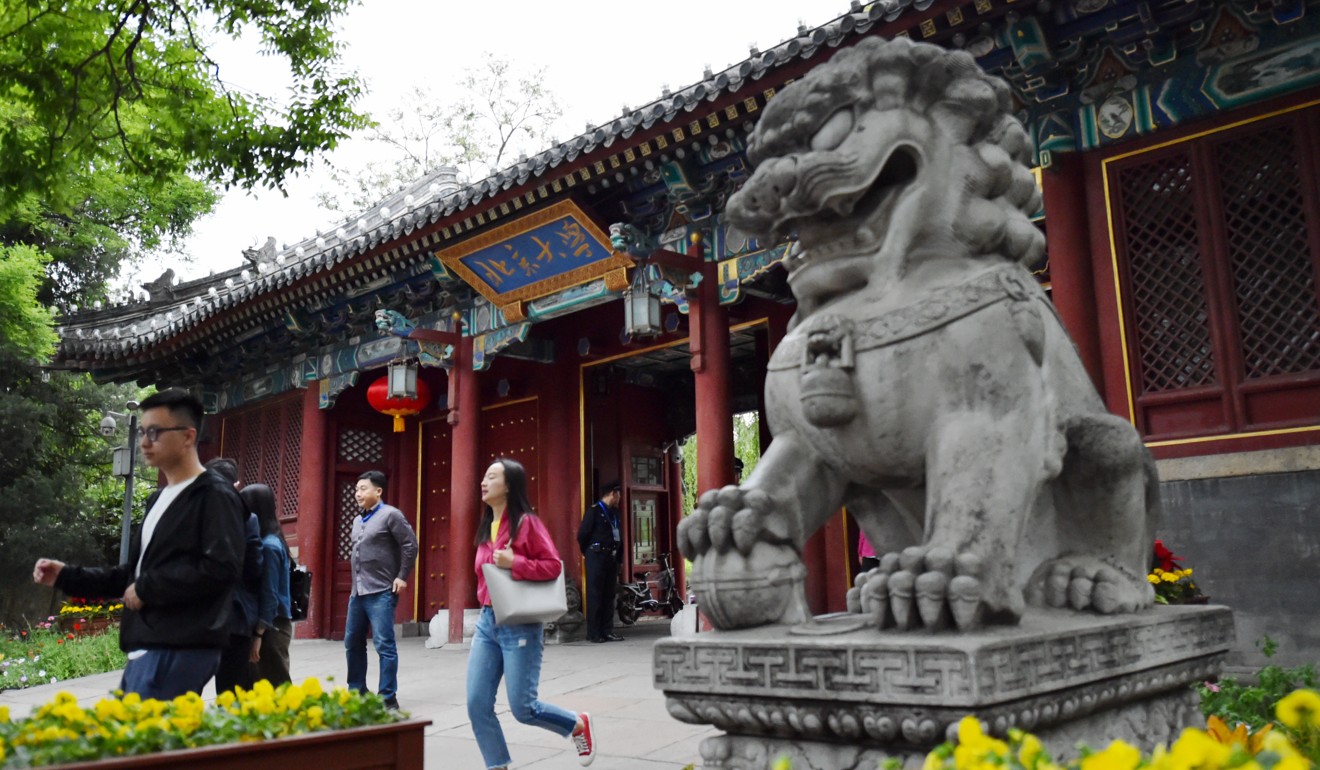
US academic and critic of Beijing censorship loses job at top Chinese university
Christopher Balding, who successfully lobbied Cambridge University Press to unblock articles it censored at Beijing’s request, ‘does not feel safe’ as a professor in China
An American professor and vocal critic of Beijing’s censorship has said he has lost his job at the prestigious Peking University and is leaving China.
Christopher Balding, who had taught for the past nine years at Peking University’s HSBC School of Business in Shenzhen, said in a blog post on Tuesday that the school had not renewed his contract.
Balding wrote in his post that he was given an “official” reason for his contract not being renewed, but added: “I know the unspoken reason for my dismissal.” He said he was notified in early November that his contract would not be renewed.
“You do not work under the Communist Party without knowing the risks,” he wrote.
Balding, an associate professor at the HSBC School of Business, did not respond to an emailed request for comment, and his Chinese mobile phone number was disconnected.
Officials at Peking University in Beijing and at the business school campus in Shenzhen could not immediately be reached for comment.
Under President Xi Jinping, Beijing has stepped up censorship and tightened controls over the internet and various aspects of civil society, as well as reasserting Communist Party authority over academia and other institutions.

Last August, Balding launched an online petition calling for Cambridge University Press to refuse all censorship requests from the Chinese government after the publisher had bowed to pressure from Beijing to block online access to hundreds of scholarly articles in China.
Cambridge University Press reversed the decision and restored access to the articles within a few days.
Balding is a high-profile voice on the Chinese economy, with an active Twitter account with more than 17,000 followers, as well as regular Bloomberg columns. He is widely quoted in media.
Balding has been a critic of China’s economic and trade policies, as well as of what he perceived as increasing surveillance and censorship in the country.
“The restrictions and how much they monitor you have increased significantly over the past couple of years,” he told Reuters last year during the controversy over Cambridge University Press.
“As a foreign professor, as long as I don’t talk about ‘four T’s’ – Taiwan, Tibet, Tiananmen and The Party – I’m pretty much OK,” he said at the time.
Balding, a self-described libertarian, adopted a variety of Twitter handles referencing targets of Chinese censorship, including “Subversive Peppa Pig Balding” and “Censored John Oliver”.
His current handle is “Capitalist Roader Balding”, from the Mao Zedong-era slur for someone with capitalist tendencies.
Balding said in his post that he had hoped to find a new position that allowed him to stay in China, but that it became clear he could not stay.
“China has reached a point where I do not feel safe being a professor and discussing even the economy, business and financial markets,” he wrote.

